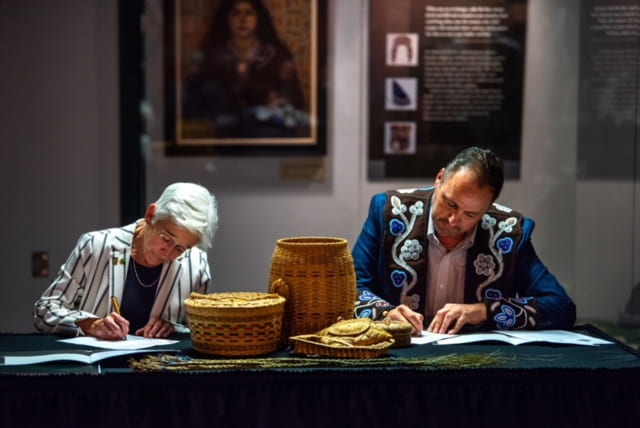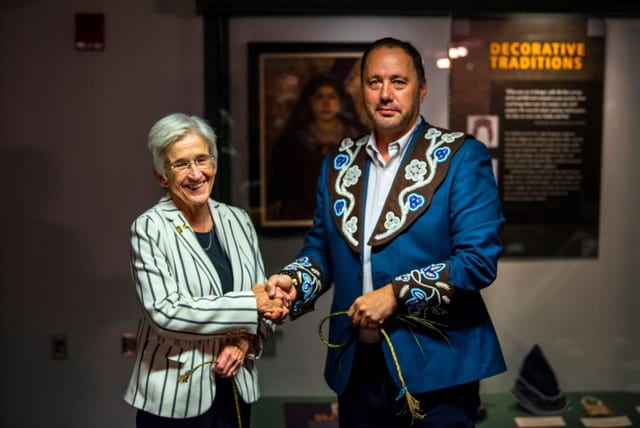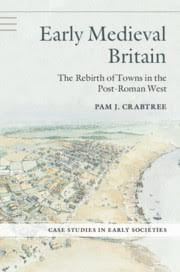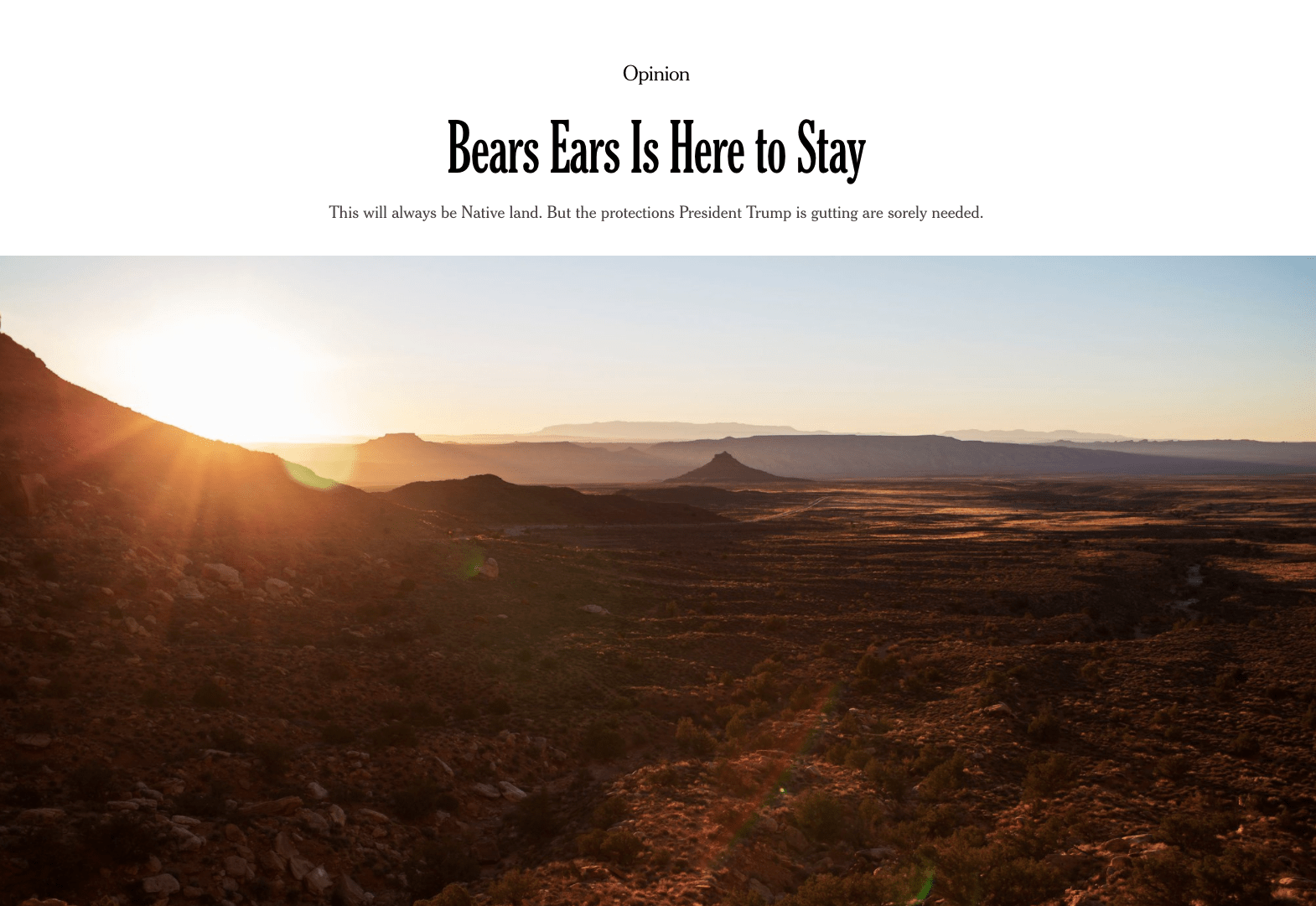Category Archives: Anthropology in the Field
Pam Crabtree’s New Book
Early Medieval Britain The Rebirth of Towns in the Post-Roman West
https://www.cambridge.org/core/books/early-medieval-britain/B4E85E01D076035B1C55D79CD1314275
Jane Anderson Involved in Drafting Memorandum of Understanding with Penobscot Nation
On May 10, Chief Kirk Francis of the Penobscot Nation and President Susan Hunter from the University of Maine signed a historical Memorandum of Understanding about the future of Penobscot cultural heritage. The MOU includes clear processes for how future research will be conducted with or on Penobscot tribal territories; for the publication of Penobscot heritage and for the inclusion and correction of incomplete or missing information regarding Penobscot collections at the University. Associate Professor Jane Anderson was involved in writing and negotiating this MOU on behalf of the Penobscot Nation.


Angelo Baca Publishes Op-ed in the New York Times
Congratulations to Ph.D candidate Angelo Baco, whose opinion piece Bears Ears is Here to Stay was published in the New York Times on December 8th, 2017. Be sure to check out his powerful and important piece here. To read more about Angelo’s research interests, be sure to check out his student profile.
Archaeological Field School in Belize
The Belize Valley Archaeological Reconnaissance Project announces its archaeological investigations for the summer of 2018!
In 2018 BVAR will continue investigations at the ancient Maya sites of Cahal Pech, Baking Pot, Lower Dover and Xunantunich. These sites are among the largest prehistoric Maya cities in western Belize. Despite many years of investigations at Baking Pot, large portions of the monumental site core are unexcavated and sections of the settlement area remain unexplored. Lower Dover, in contrast, is a recently discovered site and investigations here are only just beginning. Excavations at Cahal Pech have revealed that this site is the location of some of the earliest Maya settlements in the Maya lowlands. At Xunantunich, investigations of the large palaces and temples continue to examine the late rise of this major Maya city.
During the summer of 2018, BVAR will continue its research agenda in the monumental core of Baking Pot, with extra emphasis on radiocarbon dating and methodologies for chronology building. Research at Lower Dover will also focus on the monumental architecture, in order to develop a chronology for construction episodes and abandonment of the center. Investigations in the site core and periphery at Cahal Pech will continue in an effort to further elucidate the status and complexity of this center spanning the Preclassic to Terminal Classic periods. At Xunantunich, work will continue to expose and conserve the large prehistoric buildings in the main plaza.
Students will be involved in all aspects of these archaeological investigations, from the setting of excavation units to the production of site maps. The project also incorporates daily laboratory work where students participate in the processing and documentation of the cultural remains recovered from the site (including ceramic and lithic artifacts and human and animal remains). Weekly lectures will present an overview of Maya civilization and will provide introduction to other specific topics such as ceramic analysis, archaeological survey methods, human osteology, and ancient Maya ritual and ideology.
Dates:
Session I: May 27 to June 23, 2018
Session II: July 1 to 28, 2018
This Field Research opportunity is also available in two-week sessions:
Session I: May 27 to June 9, 2018
Session II: July 1 to 14, 2018
Academic credit is available!
Registration fees for the project are $1150 U.S. per two-week session or $2200 for the one-month field school. Fees include lodging, weekday meals, and transportation to and from the airport. Academic credit, travel to and from Belize, and incidental expenses are the responsibility of the participant.
For applications and more information all interested parties should respond via e-mail to Myka Schwanke at: BVARarchaeology@gmail.com
Island to Island at the Guam International Film Festival
Congratulations to C&M alumna Jacqueline Hazen! Her C&M film Island to Island will screen this weekend at the Guam International Film Festival! https://www.guamfilmfestival.org/island-to-island/ 
Jack Murphy (Ph.D 2009) Publishes New Monograph
Jack Murphy (French Studies and Anthropology, 2009) is an associate professor of French at Gettysburg College. His new book, Yearning to Labor: Youth, Unemployment, and Social Destiny in Urban France (Nebraska 2017) is based on dissertation fieldwork in central France, and focuses on the experiences and strategies of young people coming of age in a disadvantaged outer city (banlieue) as they struggled to find work. Jack’s next project tackles similar questions relating to personhood and social identity in contemporary France but through a different lens—the production, distribution, and consumption of frozen food, with particular attention to the French frozen-food retailer Picard Surgelés.
DACA-mented, Undocumented, and Temporary Protected Status Students and Allies
Without congressional action, the Deferred Action for Childhood Arrivals (DACA) program will expire on March 5, 2018. We do not know what the results of congressional debate will be for DACA or how these will influence other immigration issues and statuses. The Anthropology Department’s goal is to support you during this uncertain time. NYU will continue to support undocumented students, staff and faculty. If you are or someone close to you is undocumented or have DACA or temporary protected status, please know that there are many things you can do before March. The following link provides practical steps you can take as well as connections to NYU immigrant defense initiative which can help with legal advice and referrals (http://as.nyu.edu/anthropology/undergraduate/resources/daca-students.html). NYU provides additional information and resources for students here. We want to remind you during these disconcerting times that you are a valued member of our community.
Alex DeCasien’s Research Garners Media Attention
Congratulations to Ph.D candidate Alex DeCasien! Her 2nd year qualification paper was recently published, with Professors James Higham and Scott Williams as co-authors. The paper’s research found that “those [non human primates] who munched on fruit instead of leaves had 25 percent more brain tissue, even when controlling for body size and species relatedness” (NPR).
The research generated quite a bit of media attention in publications including Science, the BBC, Scientific American, New Scientist, The Guardian, and The Smithsonian.
Data Rescue Event a Massive Success
On Saturday, February 4th, 2017, several students from the Department led by Professor Jerome Whitington, participated in a Data Rescue event designed to archive and protect several websites on climate change, environmental data, and energy usage that could be threatened by our current Trump administration. Below is a statement from Professor Whitington detailing the success of the event:
“[The event] went off extremely well – about 160 people were involved, we archived a lot of federal websites and data especially from the Dept of Energy and Dept of Interior, and some other important work as well.It’s pretty heartening to see so many people engaged with environmental information and regulatory systems to such a degree of detail. Notably, we hosted a meeting among some key librarians around the country. It seems university librarians have been discussing a plan to systematically archive government data for about two decades, and some work has been done but there has never been a push to actually get it running. Due to the popular demand for this, there is now a movement for big libraries to create trusted data reserves linked in with their indexing systems. If this comes online it will be a very big win for us.”
The event was also covered extensively in the press. You can read articles about it here, here, here, and here.





